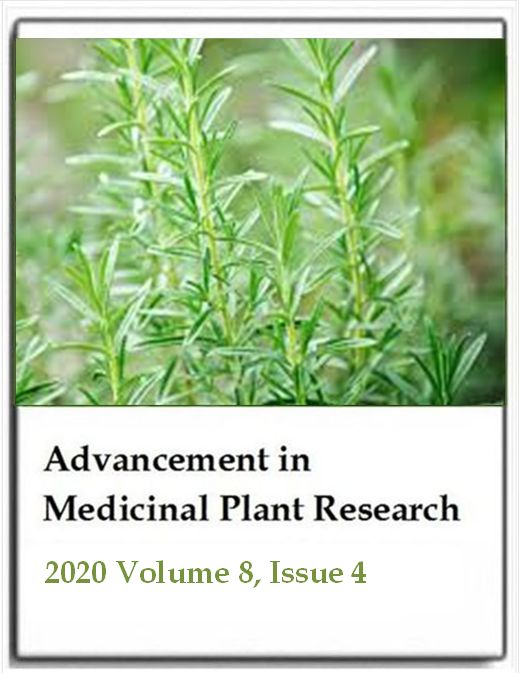Effectiveness of selected medicinal plants used for management of ticks in cattle in Western Uganda
Kiconco Catherine, Muhumuza Allan and Kamatenesi Maud MugishaAdvancement in Medicinal Plant Research
Published: November 5 2020
Volume 8, Issue 4
Pages 75-80
Abstract
Tick management among cattle farmers in Western Uganda has become an outstanding problem based on the fact that there is increasing resistance to most of the synthetic acaricides. Several herbs have been mentioned for management of ticks in different parts of the world, and they have been tested for acaricidal properties. This (experimental) study evaluated the in vitro investigation of the efficacy of Phytolaca dodecandra L’Her, Azardirachta indica A. Juss., Vernonia amygdalina Del. and Tephrosia vogelii Hook. f. in the management of ticks in Western Uganda. Cold and hot extracts of these herbs were used in comparison with Duodip a synthetic acaricide commonly used by farmers in the management of ticks within the region. Results indicated that there was a significant difference in the effectiveness of the different herbal extracts with cold extracts showing better efficacy (p < 0.0001) than the hot extracts (p = 0.12) at highest concentration used of 75 mg/ml. The mortality rate of ticks when Duodip was used was 20% which was much lower than that of the medicinal extracts used which gave a mortality rate of 30 % and above for the different medicinal plants. The use of medicinal plants therefore could be a better option in the management of ticks if well concentrated. There is need for more in vivo studies to establish the possible dermatological effects on the animals if these herbs were to be used effectively as acaricides.
Keywords: Medicinal plants, phytochemistry, acaricides, cattle, Duodip.
Full Text PDFThis article is published under the terms of the Creative Commons Attribution License 4.0

